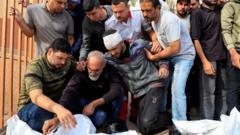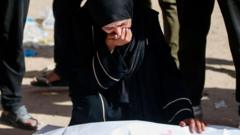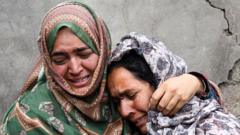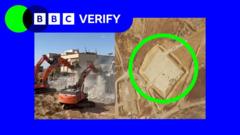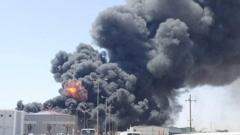Reports from Gaza highlight the dire state of food security and healthcare as residents describe hopelessness and despair amid ongoing military conflict and a blockade that has left them with inadequate resources. Eyewitness accounts reveal the impact of hunger on children and families, while international organizations express concern over the humanitarian implications of the situation.
Humanitarian Crisis Deepens in Gaza as Food and Medical Supplies Dwindle
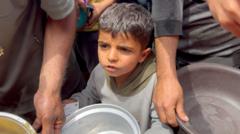
Humanitarian Crisis Deepens in Gaza as Food and Medical Supplies Dwindle
Families in Gaza are facing extreme hunger and medical shortages as military action continues and aid is blocked, leaving many to fend for themselves in desperate circumstances.
As families struggle to cope with the effects of prolonged military action and an ongoing blockade, the humanitarian situation in Gaza has reached alarming levels. Recent reports highlight the heartbreaking experiences of residents, particularly children who are going to bed hungry. A six-year-old boy, Ismail Abu Odeh, showcased the desperation felt by many as he fought for food at a distribution point but left empty-handed after his bowl was knocked out of his hands.
In a displacement camp in Gaza City, families await aid that is slow to arrive. Despite the Israeli government's assertions that there is no food shortage—blaming Hamas for looting—eyewitness accounts tell a different story. Many residents report struggles to obtain even one meal a day, as local kitchens shut down and prices for remaining items soar beyond their means.
Adham al-Batrawi, a displaced resident from al-Zahra, highlighted the extreme lengths people are going to survive, explaining how they have invented cooking methods to create makeshift meals from limited resources. The grim reality of hunger and the threat of famine are echoed in the words of those in Gaza, including medical staff who report dire shortages of supplies in hospitals, further exacerbated by the blockade.
Reports also reveal how families cope with not only the hunger but the constant threat of violence. Nurse Rewaa Mohsen described how her daughters have grown accustomed to bombings, while she struggles to procure necessary items like diapers. The lingering uncertainty and fear are amplified as families receive evacuation orders amidst ongoing strikes.
International organizations have voiced concerns about the dire state of healthcare. As hospitals face strikes and dwindling supplies, medical professionals like Randa Saied share their growing fears for safety, yet remain committed to serving their communities. Meanwhile, a new system for delivering humanitarian aid through private companies is being developed by the US, raising concerns about the politicization of aid among critics who see it as potentially weaponizing support.
As the situation in Gaza deteriorates, families like Ismail's continue to suffer, with parents expressing their anguish over their inability to care for their children's basic needs. The plight of Gazans under current conditions reveals a cycle of suffering that raises questions about the future of humanitarian efforts in the region and the dire need for sustained international attention and assistance.



